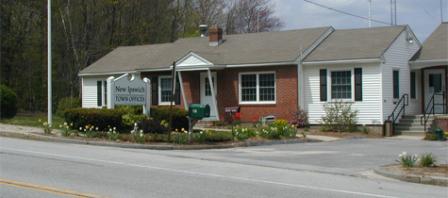Smoke & Carbon Monoxide Detectors
Smoke Detectors and Carbon Monoxide Detectors SAVE LIVES
Who needs smoke detectors?
ALL New Hampshire residences are required to have smoke detectors installed.Click here for more iInformation
Who needs CO detectors?
Although the New Ipswich Fire Department recommends that ALL residents have CO detectors installs, the State of NH requires CO detectors as follows:
- Every single-family dwelling, which is built or substantially rehabilitated after January 1, 2010, shall be equipped with carbon monoxide detection devices.
EXCEPTION: A carbon monoxide detection devise shall not be required if the single-family dwelling does not have an attached garage and does not contain an appliance or device that uses a combustion method of burning solid, liquid, or gas fuel. If a garage or combustion fuel appliance of device is later added to the dwelling, carbon monoxide detection devices shall be required.
- Each multi-unit dwelling and rental unit shall be equipped with carbon monoxide detection devices.
EXCEPTION: A carbon monoxide detection devise shall not be required in a multi-family dwelling that does not have an attached garage and does not contain an appliance or device that uses a combustion method of burning solid, liquid, or gas fuel. If a garage or combustion fuel appliance of device is later added to the dwelling, carbon monoxide detection devices shall be required.
Click here for more information.
AGAIN, IT IS THE RECOMMENDATION OF THE NEW IPSWICH FIRE DEPARTMENT THAT ALL RESIDENCES HAVE CARBON MONOXIDE DETECTORS INSTALLED.
Portable Generators
Are you considering the purchase of a portable generator? The New Ipswich Fire Department asks you to please read the following:
Safety
Use of generators has caused many deaths, most caused by inhalation of carbon monoxide (CO). CO is colorless, odorless, tasteless and DEADLY! Never run a generator inside a basement, garage, or other enclosed structure. They must be used outside the structure.
Is it really needed?
Clearly electricity is required for medical devices (CPAP, oxygen generators, dialyzers, IV pumps, etc.): electricity for refrigerator where insulin is kept; electricity for the sump pump, oil burner, well pump, septic system pump, electricity for quality of life (TV, DVD).
Sizing
Portable generators power specific electrical circuits. Some generators can power a few circuits, some many, come can power all circuits. Most consumer-oriented generators can not power circuits where electricity becomes heat - electric range, electric baseboard heat, electric clothes dryer. A licensed electrician is the best resource to determine the generator size needed.
Installation
A bypass (transfer) switch must be used and installed by a licensed electrician. This switch allows the generator to power the selected circuits, while disconnecting power that comes into the home from your electricity provider. By disconnecting your home from your electricity provider you prevent "back-feeding" - electricity from your portable generator going in the reverse direction, into the line coming into your home. Back-feeding has caused injuries and death in utility workers and others who touch downed power lines, assuming that they are not energized.
Operation
Follow all generator manufacturer's directives: length of operation, refilling procedures, etc.
Conclusion
Safety is absolutely the major consideration. Use the generator in a safe outdoor location, keep fuel stored in a safe location, makes sure that there are working carbon monoxide (CO) detectors in place, and never, ever touch or go near a downed wired.
A DOWNED WIRE SHOULD ALWAYS BE CONSIDERD A LIVE WIRE!!!!




